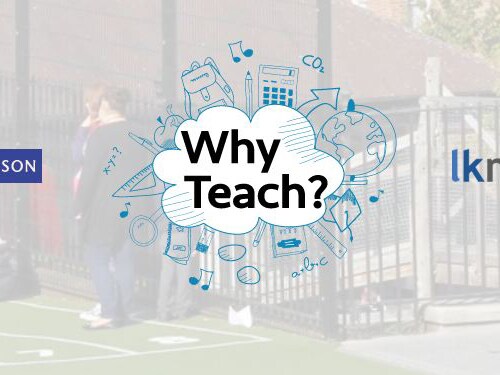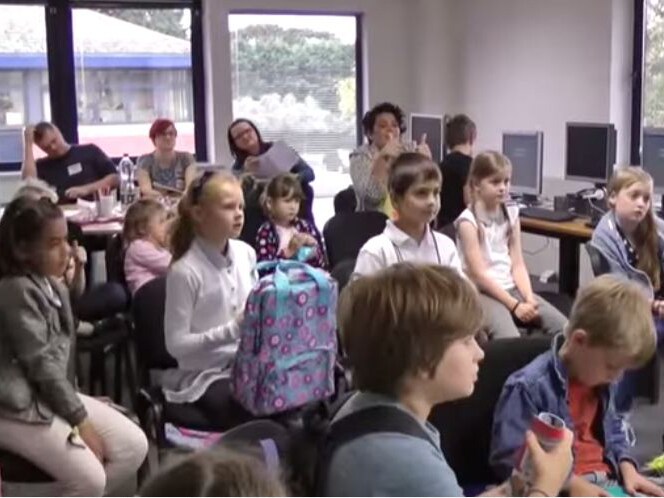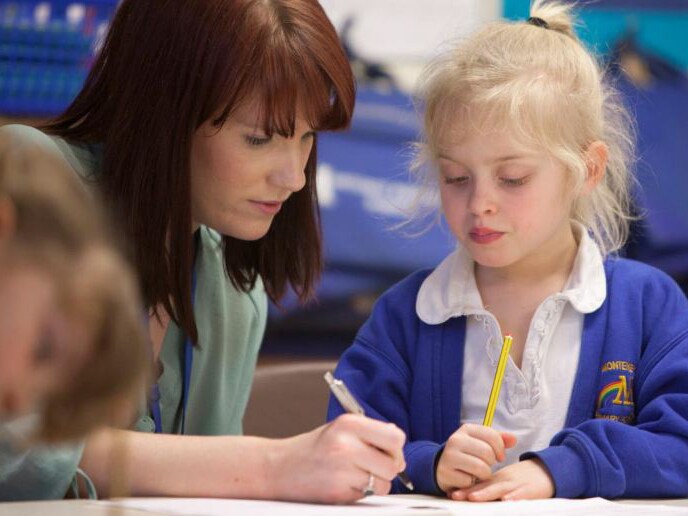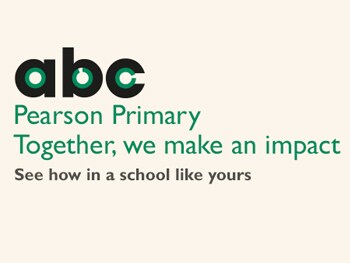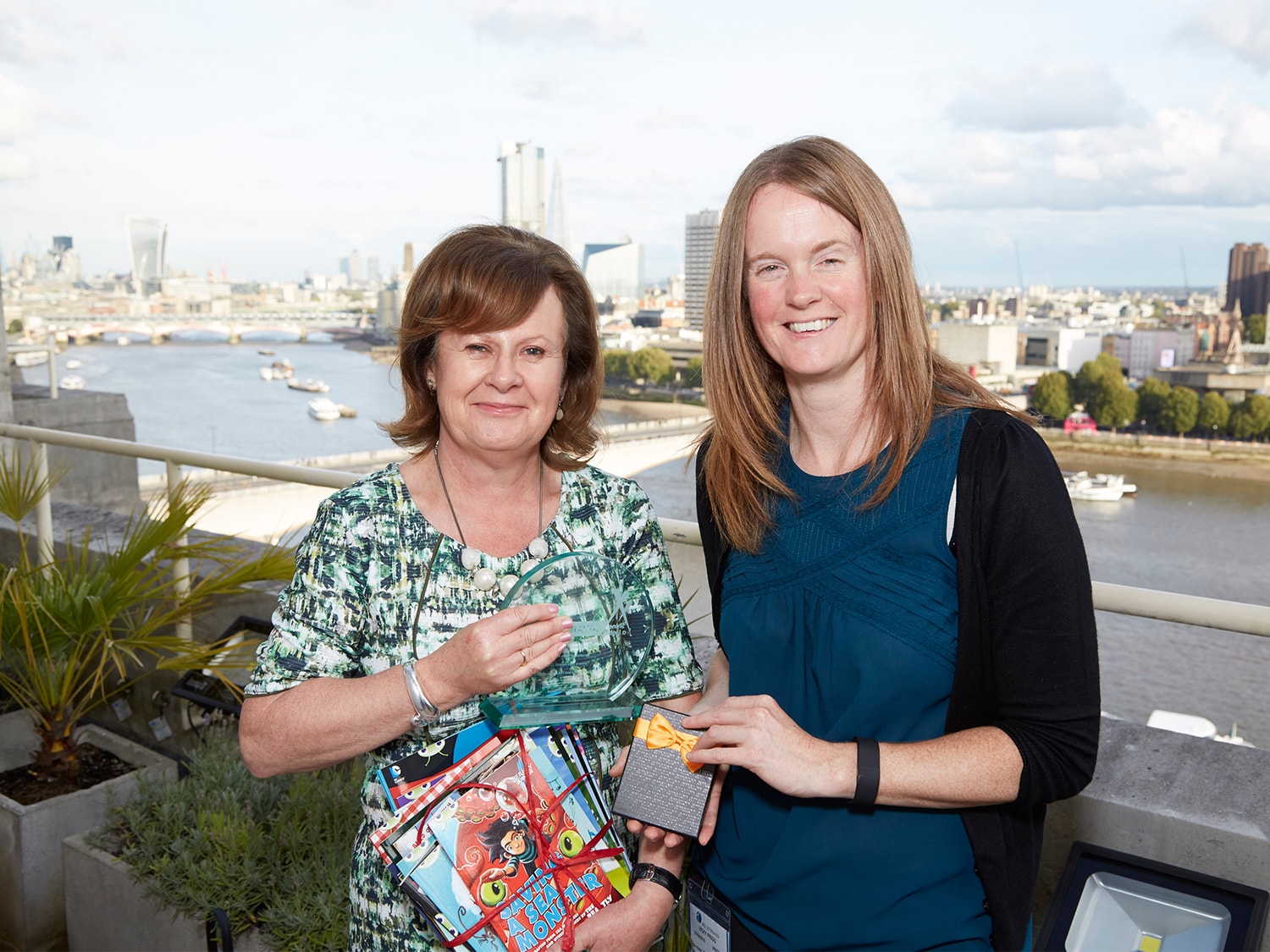
How Middle Barton School has made growth mindset a whole-school approach
The concept of a growth mindset is not a new one, especially if you are familiar with the work of psychologist Carol Dweck.
The concept of a growth mindset is not a new one, especially if you are familiar with the work of psychologist Carol Dweck.
The NUT’s 2014 Workload survey, completed by over 44,000 teachers, revealed some alarming statistics.
It matters to us that our programmes and training have a deeply positive impact on pupil progress and outcomes. Which is why we’re committed to evaluating their impact.
Ever since the government announced the disbanding of National Curriculum levels, schools have been asking for support on what the government and Ofsted expect to see from a school assessment system.
Remember Pavlov? He’s the guy who conditioned dogs to respond with a saliva reflex to the sound of bell.
At first, the dogs would be given a nice juicy piece of meat each time the bell rang, until eventually, the neural pathway was strong enough that the dogs would salivate at the idea of being fed even when the piece of meat was then withheld.
Obviously, as humans we’re a bit brighter than your average dog. But that doesn’t mean we don’t respond to conditioning – particularly when fear is involved. For many years now you’ve been expected, as teachers, to take a data-led approach to assessment. To give each child a number and to measure their progress as their evolution between these numbers.
A failure to keep track of, and to report on children’s attainment using these numbers would result in a less-than-glowing appraisal of your school’s performance from Ofsted.
So, while the DfE has long been clear that Levels are finished and that schools are free to develop their own systems of assessment and reporting, so strong is the conditioning that many schools have had difficulty believing in this freedom and letting go of the old regime.
Even those wanting to engage found themselves in a vacuum of information and direction. For pressured Heads and senior leaders with a mountain of things on their plate already, the whole area of assessment must have seemed like a ticking time-bomb that they didn’t have the manual or the time to defuse.
The Commission on Assessment without Levels was therefore set up to provide guidance to schools on creating their own assessment policies, and to help them through a time of ‘radical cultural and pedagogical change’ (to borrow from John McIntosh’s foreward to the commission’s final report).
What it does do, is provide a manifesto for high-quality, meaningful assessment that offers guidance to schools to help them develop their own policies.
However, if any schools were hoping for an off-the-peg solution to assessment or a replacement set of levels fitted to the new curriculum, the commission’s final report does not deliver.
It provides no templates, and prescribes no specific content for a school’s assessment policy. What it does do, is provide a manifesto for high-quality, meaningful assessment that offers guidance to schools to help them develop their own policies.
The detail is of course available within the report itself, but the overall message is that formative assessment is crucial; that acting upon assessment is far more important than recording it, and that schools ought not to be driven by expectations of what they think Ofsted inspectors are looking for. (The latest Common Inspection Framework plainly states that they are not looking for a particular approach).
The report also identifies what needs to happen in order for schools to feel completely comfortable and secure about their assessment policies. To be able, in short, to let go of the old way of thinking without fear of reprisal.
This includes a greater focus on assessment as part of initial teacher training, training for school leaders and Ofsted inspectors around the principles and purposes of assessment, and what best-practice looks like.
Does this mean the demise of summative assessment? Not at all. The report recognises that summative tests are a useful means of evaluation pupils’ learning and progress at the end of a period of teaching.
It’s important, however, that the data is not an end in itself, but is a way of a way of getting information that supports pupils' progress and attainment to help you tailor your teaching accordingly.
It follows therefore, that when you’re creating, or looking for ready-made summative assessment resources, you need to think about how they help you to close that loop.
What do you do now? Well, whatever it takes to get rid of that old conditioning. Grasp this opportunity for what it is – a government sanctioned move towards a more innovative, child-focused, sensible approach to assessment.
Read the report, if you haven’t already, and get excited. And most of all, believe. Believe that you know what good assessment looks like, and believe that the DfE trusts you to make it happen.
Last month saw the proud launch of our new Impact pages. Here, you’ll find the first tranche of case studies and evidence showing exactly how our programmes and professional development help teachers to have the biggest impact on each of their children.
Don’t get us wrong. We’re not trying to lay claim to credit that belongs to you. One of the central tenets of the Pearson Primary manifesto is that we support teachers to do what they do best.
We know that it’s the quality and the passion of your teaching that has the greatest impact on children’s learning. But we also know that teaching is a huge job. You have to be an expert in all things: the subjects you teach, pedagogy, assessment, classroom management, curriculum design… and that’s just the tip of the iceberg.
So let us take some of the pressure off your shoulders. You can trust us to support you with fantastic resources and training that help you do your job as brilliantly as you want to. We know, though, that trust is won, not given, and that’s what our impact site is all about.
It matters to us that the programmes and professional development we create really do help children to achieve in their education. That’s why we build our programmes on respected research and evidence - such as the Clackmannanshire Study into Synthetic Phonics - and why we sponsor studies by leading academics into key areas of Primary assessment, pedagogy and policy.
When we're talking about children's futures, though, it's not good enough simply to create a resource and send it out into the world to make its own way. That's why Pearson is committed to evaluating and reporting on the impact of our resources – and improving them, when necessary, to make sure they do not just a good, but a great job for the teachers and children using them.
We do this while we are developing them - road-testing them with real teachers and children. We do this by checking in with our customers once they have bought them to see how they are using them in their school, and to what effect. We do this by giving them to Local Authorities to test with groups of schools in their area.
So, please do check out the case studies, infographics and research summaries to see the positive impact that the partnership of great teachers and great Pearson programmes and professional development have been having in schools like yours.
Then, if you would like to, get in touch with us to tell us about your experiences with them. Perhaps you'd be willing for us to do a case study based on your school, or perhaps you would just like to tell us what you think works best, or what you would do differently if you could. Please use the comment function below and we'll be in touch.
P.S. - This is an evolving site, with more to come for maths and intervention, so why not bookmark it to make sure you get updates?
At Pearson Primary, one of our main manifesto pledges is that we put learners at the centre of everything we do. For us that means every child getting their chance to shine.
That's why we're so proud of the work of our colleagues at Pearson Clinical Assessment, who, along with the Communication Trust, sponsor the annual Shine a Light Awards.
These awards recognise the amazing work done by organisations and individuals to help children and young people with language and communication difficulties.
Host of the award ceremony, David Baddiel, summed up why it is so important to recognise this contribution: “Speech and language problems too often go under the radar, so everyone should not only be congratulated for their work but for bringing this important issue to the attention of others."
He went on say, "I would like to say well done to all those shortlisted who have shown true grit and determination to better themselves and others. They are all a true inspiration - keep up the good work.”
We at Pearson Primary couldn't have put it better ourselves. In the Primary sector, there was one outright winner and two highly commended finalists:
Aerodrome Primary Academy School (featured in picture above). Aerodrome Primary Academy has introduced numerous initiatives to support their pupils from the Children’s Centre and Nursery through to Year 6, focusing on improving the communication skills of all pupils.
Aerodrome Academy is dedicated to providing a whole school approach and has developed a strong commitment to working closely with parents. The school's “A chance for all” approach impressed the judges resulting in amazing pupil progress and we are delighted to announce Aerodrome Academy as this year’s winner.
John Ruskin Primary School, which was praised for its creative support for children with speech, language and communication needs and its systematic approach to developing the communication skills of all its pupils.
Lark Hall Primary School. The judges particularly liked the fact the school shop was run by the students as it gave them valuable opportunities to develop communication skills. Congratulations to the three winners and to all of the finalists, for all of the incredible work they do.
Parents: 7.45 a.m. So, the Age 5 trousers look a little short but the Age 6 trousers are dragging on the ground – which looks least stupid?
8.15 a.m. Before the summer I had 14 water bottles, now I only have 1… which kid do I like most?
8.30 a.m. Can’t believe we’re going to be late on the very first day. If I was a pair of black school shoes where would I have put myself for six weeks?
8.45 a.m. Can’t wait to see my mummy friends again… Ooh, and yes of course, hope you have a lovely first day back, darling!
Kids:
6.00 a.m. Yep, I’m awake. I think I’ll go and jump on mummy.
7.45 a.m. I want a chocolate biscuit for breakfast. No, not cereals. No, not toast. No, not even Pain au chocolat. I want a Wagonwheeeeeeeeellll!
8.30 a.m. Why is mummy in such a flap about this? I wish she’d stop asking where I put my shoes – that was like YEARS ago.
8.45 a.m. Yay! It’s like a giant reunion party.
9.30 a.m. I miss my old teacher
3.15 p.m. I LOVE my new teacher!
Teachers:
8.30 a.m. Once more unto the breach, dear friends, once more
8.45 a.m. Are you going to be a problem, Mrs Parent?
8.50 a.m. Name labels. Need name labels!
10.00 a.m. Blur
11.00 a.m. Blur
12.00 p.m. Blur
1.00 p.m. Blur
2.00 p.m. Blur
3.15 p.m. Must match children to correct parent. Aaaarggh, escapee. Back ‘ere, Jones!
3.30 p.m. Only six more parents in the line to see me.
3.45 p.m. Shattered!
The updated Ofsted Common Inspection Framework (CIF) was launched on 11 June for inspections from September 2015. Until the end of the current term schools will be inspected under the 2012 framework (last updated in January 2015).
The new CIF is designed to pull together the inspection of the different education settings (early years setting, maintained schools and academies, non-association independent schools and further education and skills providers) ‘to provide greater coherence across different providers that cater for similar age ranges’.
Between the framework, the Inspectors' handbook, and a plethora of supporting material to assist schools with its roll-out and assimilation, there is quite a lot to wade through, so here is a quick summary of the most important points:
Safeguarding is now reported under Leadership and Management. There will also be a greater emphasis on the notion of ‘British values’ (already included in the January edition) which include ‘tolerance’ and ‘respect’.
The personal development section also includes a reference to extremism – ‘understand how to keep themselves safe from relevant risks such as exploitation or extremism, including when using the internet’.
Short inspections for schools judged as being ‘good’ in their last inspection are being introduced. These new shorter inspections will start from the assumption that the school is still good, with an emphasis on leadership.
The onus is therefore on the leaders to provide sufficient evidence to HMI that this is the case, with a full inspection to follow only if HMI do not see enough during the short visit to be convinced.
The launch of the new CIF was heralded by a speech delivered by Sir Michael Wilshaw to Westminister outlining the principles of the document and talking about the future of education inspection.
In it, he outlined a number of key focus areas that inspectors would be looking at. In his own words, these are:
Alongside the inspection handbook/document is an additional paper clarifying the facts about Ofsted inspections and attempting to dispel the ‘myths’ surrounding inspection preparation, a key source of stress for teachers and school leaders. Ofsted does not:
This guidance has been well received by teachers and teaching unions. as evidence that Ofsted is recognising - and seeking to address - both the mental toll and the considerable demands on teachers' time that inspection has been taking in recent years.
From September 2015 schools are required to show how they are managing and measuring attainment and progress now that they are no longer using levels to measure attainment.
Inspectors will consider how well teachers use any assessment for establishing pupils’ starting points, teacher assessment and testing to modify teaching so that pupils achieve their potential by the end of a year or key stage. However, Ofsted does not expect to see any particular system of assessment in place.
Evidence of in-year progress and attainment information should be provided to inspectors in the format that the school would ordinarily use to track and monitor the progress of pupils in the school.
Reference is made many times in the document to 'Schools' own Assessment Policies'. As part of the good practice in school policy update and review, schools are well-advised to have their assessment, marking and feedback policies updated and in place by the start of the Autumn term.
Find out more how Pearson can support you with assessment with our new service Progress & Assess.
Image credit: Robert Kneschke. Shutterstock
